What the World Needs Now…. How Ecologically Sound is our Watch? A Taste for Vegan Straps
A small contribution that we, watch industry representatives and enthusiasts, can make?
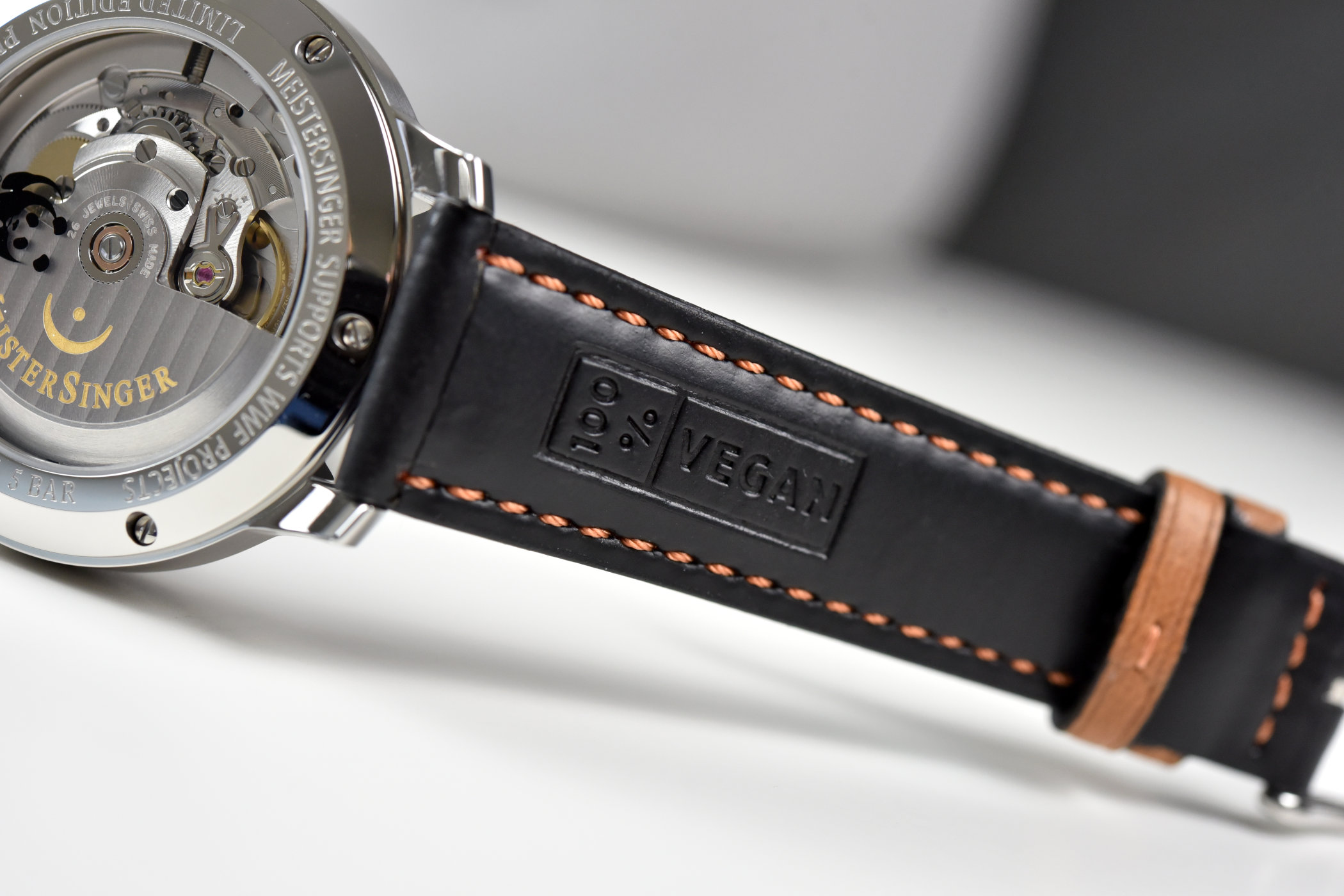
A new trend is simmering in the distance. Or maybe not so far away. Now the Glasgow Climate summit has been concluded with a final declaration that leaves a lot to be desired; perhaps it is time to turn to ourselves as watch collectors to make a difference. We are not asking you to walk to the next Geneva Watch Days, eat vegan ‘Bratwursten’ or only buy Fairmined gold watches, we are just interested to know how you feel about making a small contribution by, let’s say, choosing a non-animal watch strap for your next acquisition.
This article has been written by Melinda Braaksma for MONOCHROME.
First, let’s establish the definitions used in this article. Genuine leather is the term used for material made from animal skin, used to create fashion items such as handbags, shoes, belts, watch straps and jackets, but also furniture and car interiors. Whereas it can be argued that leather is a by-product of the dairy and meat industry and that if the leather is not bought for the fashion and car industry, it would just be thrown away, let’s not forget that the leather industry is a commercial industry in itself, for which animals are raised (think alligator farms) and killed. And although animal suffering may be kept to a minimum at many production sites, a PETA investigation about China – the world’s largest leather exporter – stated that in addition to cattle, sheep, and other animals killed for leather in that country, an estimated 2 million cats and dogs are killed annually for their skin, too. Besides the fact that animals are killed for our watch straps, we also have to take into account that the chemicals used to tan and colour the hides are bad for the people who work with them and who wear the end products, as well as for the environment we all live in.
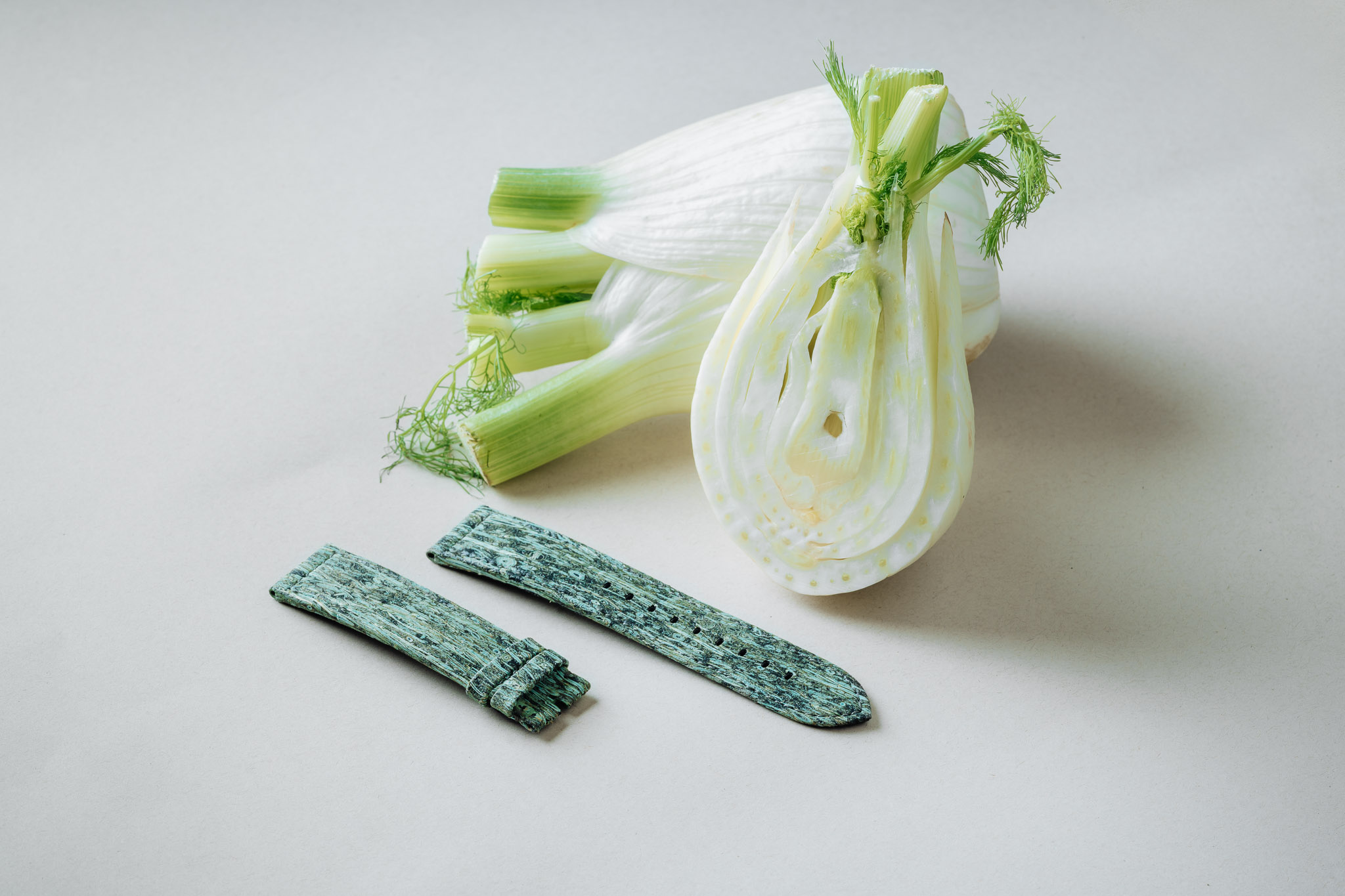
Are there alternatives? Yes, of course. We can use metals, such as gold, stainless steel and titanium, but also carbon fibre, textiles, such as denim (Kurabo Premium Denim), Alcantara, Cordura, synthetic gabardine, perlon/nylon, canvas and silk straps. But these are not all, per definition, 100% vegan. Silk straps, for instance, involve the killing of thousands and thousands of caterpillars who die in their cocoons when the pops are boiled to extract the silk.
Moreover, small steps in the production of other material watch straps, such as glueing, may involve animal products all the same. For the sake of argument, let’s narrow our vocab down to vegan leather, the newest alternative on the market. By this, we mean straps made out of plant-based materials, such as pineapple leaves, corn, fennel, grape, cactus, apple and coconut fibres. For a fraction of the cost of an animal leather strap, you can fit your Patek Philippe with a cruelty-free vegan leather strap. Would you do it?
Recycling
First, let’s take a look at some initiatives already taken by the industry before we turn to plant-based straps. Chopard has been using fair-mined gold only for their watch case production since 2018. Similarly, Panerai is an advocate of sustainability with its new, eco-friendly manufacture. This year the brand introduced the Submersible eLAB-ID, which was constructed from 98.6% recycled-based materials, even 100% of the Super-LumiNova had already been used.
Swiss-based case manufacturer Panatere is a big supplier in this segment. It has been making 100% solar recycled steel cases for Kari Voutilainen and 100% recycled steel cases for ID Genève, for instance, and demand from other brands is so high that there is a shortage of raw materials. Liselotte Thuring, Senior Product Manager Sustainability from Panatere: “Brands have to change in terms of being carbon neutral and in brand image as well by propositioning real changes and not just ‘greenwashing’. We are speaking with big groups and big brands right now, who will unveil novelties using our production very soon.” Panatere won the Responsibility and Sustainability Award at the Luxury Innovation Summit of Luxury Venture Group in early November 2021.
Gyre and Seaqual
It is good to see that, overall, the recycling of stainless steel and rubber straps is on the increase. The Seaqual® alternative goes even further in weaving a responsible fabric from upcycled marine plastic found on the ocean floor and surface. The lining material is made from apple skins and core waste recovered from the food industry, which makes this a great choice for the environmentally conscious person.
Dutch/Swiss sustainable watch brand GYRE has straps made of upcycled plastic bottles. The cases are already made of upcycled fishing nets. Local fishermen take the fishing nets out of the sea and deliver them to the recycler. They receive compensation for this, which means that GYRE also contributes to the local economy. The nets are then cleaned and processed into pellets for the watch case. GYRE is currently working on the final steps to create a strap that is also made from fishing nets. Currently, the straps are made from recycled plastic bottles. In the same vein, Alpina Watches has been working with GYRE to produce watch cases, and Ulysse Nardin also proposed such an initiative recently.
Opinions from the field
But what about ‘leather-like’ and fully cruelty-free alternatives for genuine leather straps? Henrik de Keizer, owner of www.horlogebanden.com, told us: “We don’t see any demand for non-animal straps yet. True, producers are abandoning the more exotic kinds of leather, such as lizard or alligator, because people think it’s cruel. I just wonder why it wouldn’t be cruel to kill a cow or lamb for its leather, but well…” De Keizer also thinks it is a price issue. “Let’s be honest, we sell European origin leather straps from 20 to 350 euros, but our bestsellers are in the 50 euros or less range. For these customers more expensive, though environmentally sound straps are not a big issue yet. Moreover, they are hard to come by, our supplier Hirsch only offers one plant-based strap, the Hirsh Wine, and it’s a limited edition. I think we need volume to save the world this way. I’d like to replace our leather straps, but the alternative cannot be more expensive, and the quality has to be the same. We don’t want straps to mould or tear after a year of wrist time.”
Cork & synthetics
Other options included cork and synthetic materials. Cork is an eco-friendly material in that it is recyclable, biodegradable and it can be harvested several times per year without harming or cutting down the tree from which it is harvested. This means no erosion, no desertification and no deforestation; in other words, the natural habitat of animals living among and in the trees can be kept intact. As far as watch straps are concerned, cork is lightweight and durable, and comfortable to wear. Moreover, corks natural waterproof properties make straps made of this material suited to any activity. The only drawback is that straps of cork are often lined with PU (polyurethane) for more comfort. PU is a synthetic material, and although it is vegan-friendly), maybe you want to go for a fully natural product.

The same goes for so-called Enviroleather, which is made of TPE (thermoplastic elastomers), polyester & cotton and cotton-woven microfibre coated with PU. Synthetic alternatives, that lack the luxury look and feel of a real leather strap. The same goes for Lanciano Vegan eco-leather, which is made using synthetic vegan-friendly materials, under strict ecological guidelines. The material has a similar feel to genuine leather, is resilient, and features a goatskin grain, but facts remain, it is synthetic.
Pinatex® pineapple fibre straps
Let’s turn to fully vegan alternatives. MeisterSinger, the single-hand watch brand from Germany, is one of the pioneers when it comes to plant-based vegan watch straps. As says Tanja Brassler from the brand “This year we realized the very exciting project “Planet Earth” with WWF (World Wide Fund for Nature). This edition literally puts the planet at the centre.”
“With this watch, we are looking to increase the ever-growing number of people looking for a way back to a truly sustainable economy and the considerate use of our planet’s resources. The concept of the Planet Earth watch includes that 200 euros for every watch sold are donated to WWF as direct support. The watch is limited to 500 pieces, therefore it will be 100,000 euros for WWF in total.”
Part of the Planet Earth is the sustainable overall concept. Brassler said: “For one thing, we developed an environmentally friendly packaging. Next to that, we decided to equip the watch with a vegan leather watch strap. So we went looking for a qualitative vegan leather alternative and tested various materials.” Then adding: “In the end, we decided on leather alternatives that are manufactured from apple fibres in a sophisticated process. They originate from the Tyrol region of northern Italy, an area renowned for the production of apple juices, where a significant amount of the raw material is discarded each year. The products manufactured there kill two birds with one stone – not really, that wouldn’t be very ecologically sound!”
“Firstly, they recycle valuable residual materials and secondly, they strike a chord with the zeitgeist by offering an outstanding alternative to leather made from renewable raw materials. The results are seriously amazing. The plant-based watch straps behave exactly like their genuine leather counterparts and have also passed comprehensive material and wearing tests with flying colours.” All straps are thoroughly tested, of course. According to Brassler, “Whenever we intend to introduce new straps, we test them for several months and subject them to the various situations of life (gardening, showering, sports, cooking….). That’s what we also did with the vegan straps. We experienced that they react just like real leather straps“.
The whole quest for a plant-based alternative for animal leather was an eye-opener for MeisterSinger. “Our planet needs to be protected, and we would like to make a contribution. Therefore, we are in the course of changing for the better. For example, we’ve been changing shipping materials for the better and get more sustainability in our office management. Starting at the beginning of next year all our watches will be packed using the sustainable packing of the Planet Earth. The vegan straps are already available in our Online Shop, and we will start equipping watches with vegan watch straps as standard straps.”
The need for alternatives for animal leather and the process of making apple skin, corn, fennel, olive leaf and Nopal cactus based leather is demonstrated in this video. Tests are even conducted with cellulose-based leather. The video is in German, but the images of animal cruelty and chemical tanning and colouring are clear. Plant-based leather production is better for animals ánd people. And better yet, it looks and feels the same as animal hide!
Swiss company Panatere, mentioned earlier, is also working in collaboration with a few start-ups in the development and creation of vegetal material for straps, as an alternative for animal leather. Materials used are 100% fennel and 100% grapes and wood-based cellulose.
The process
In short, the peels are extracted from the fruits and vegetables, and dried in the sun (or in an oven if the weather is bad). Then, the mass is purified from dirt, gum, pectin, et cetera. A fluffy material remains, the base material for the vegan leather. When pineapple leaves are used this material is called Pineapple Leaf Fiber (PALF) and it is soft and breathable. The fluff is felted in a mechanical, thermal and chemical process into sheets of ‘leather’ from which the straps can be cut.
The environmental benefits are various: straps should be PVC and plastic-free, contain no added antimicrobial chemicals or heavy metals, are animal-friendly, lightweight, naturally water-resistant, hypoallergenic and 100% biodegradable. Strength tests prove that PALF leather, Piñatex or Amagoh, for example, is robust according to demanding ISO standards for abrasion, seam rupture, tear, tensile strength and colour fastness (even with organic pigments).
One side remark has to be made, says Tanja Brassler of MeisterSinger: “Our manufacturer currently still needs PLA (Polyactid) for stabilization. This is a material from the group of polyester which is synthesized on the basis of biological raw materials. In the core, these are chemically bound lactic acid molecules. The basis for this type of plastic can be created, for example, by fermenting molasses or fermenting glucose. Incidentally, PLA is also biodegradable. So, unfortunately, at the moment this kind of plastic is still needed, but at least it’s one of the better ones. Our manufacturer has been working on the mixture of the vegan leather since 2008 – his goal is to completely dispense plastic and to manufacture a completely plant-based product.”
Strap supplier Hirsch introduced its first plant-based strap, the Wine, in 2021. Prices range online from 99.99 euros to 185.90 euros. The Wine is a limited-edition strap in Hirsch’s new animal-free Nature range, and comprised of a special organic Fibre Tech core adorned with real leaves from Austrian organic vineyards, treated for extra flexibility and durability and applied to a special carrier layer – the end result is the strikingly uncanny appearance of authentic, natural green leaves upon the wrist. As the leaves used in the making of this strap are a finite byproduct of the winemaking process, these straps are a limited edition, as only a certain number can be made per year.
Your choice
Would you buy a high-end watch with a vegan (plant-based) strap? YES – NO
Tell us what you think about it and why in the comments, we’d love to hear your thoughts.


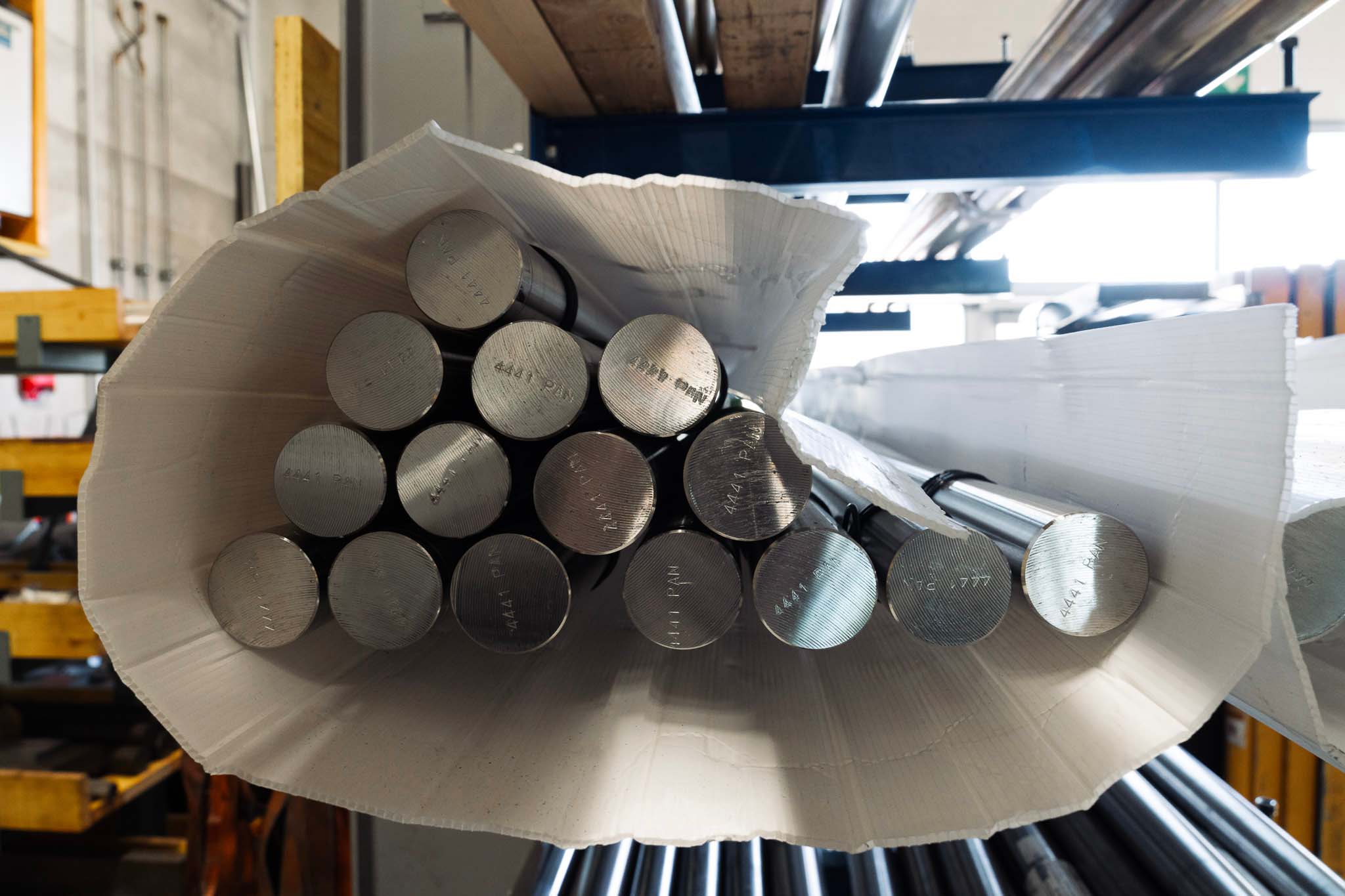
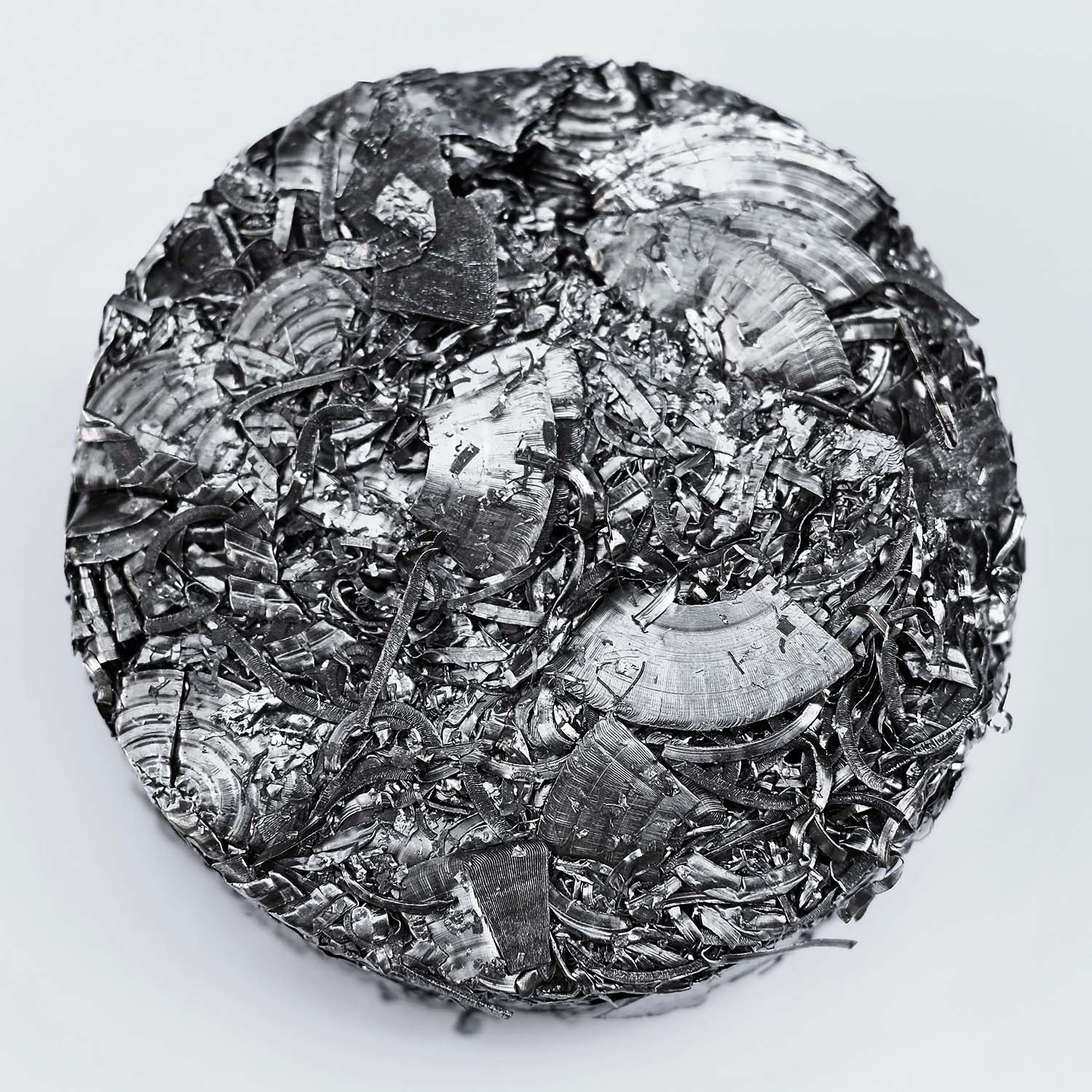
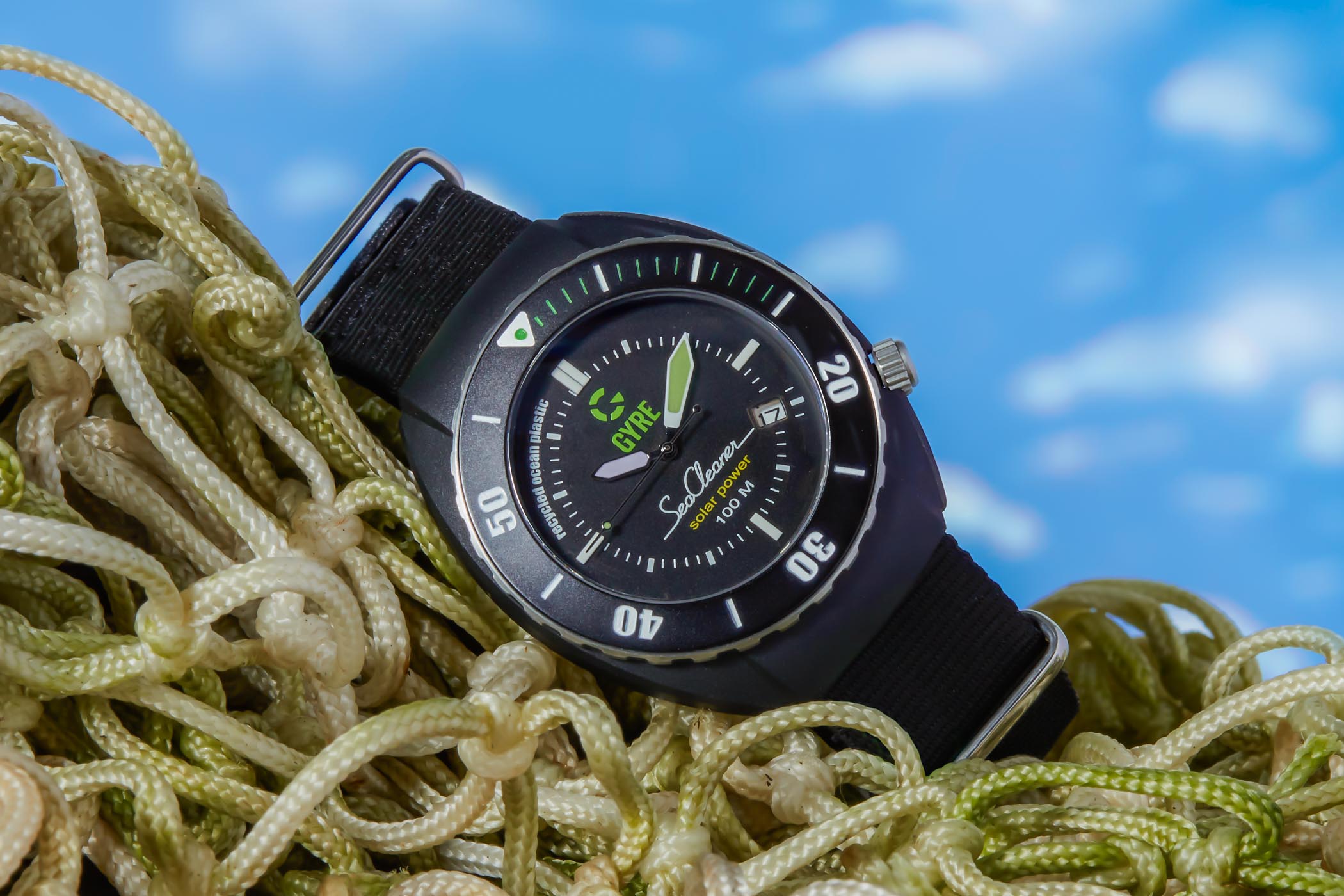
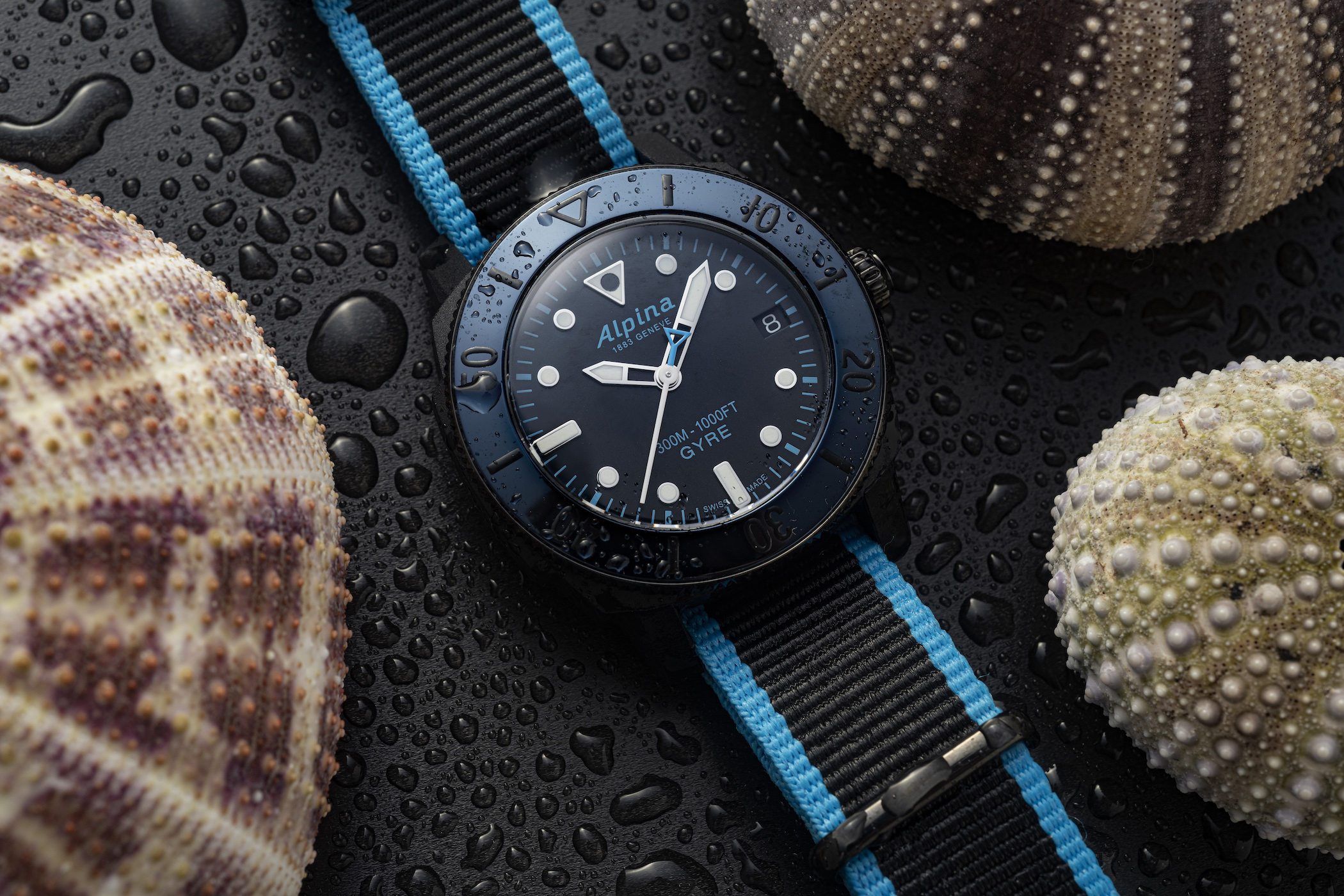
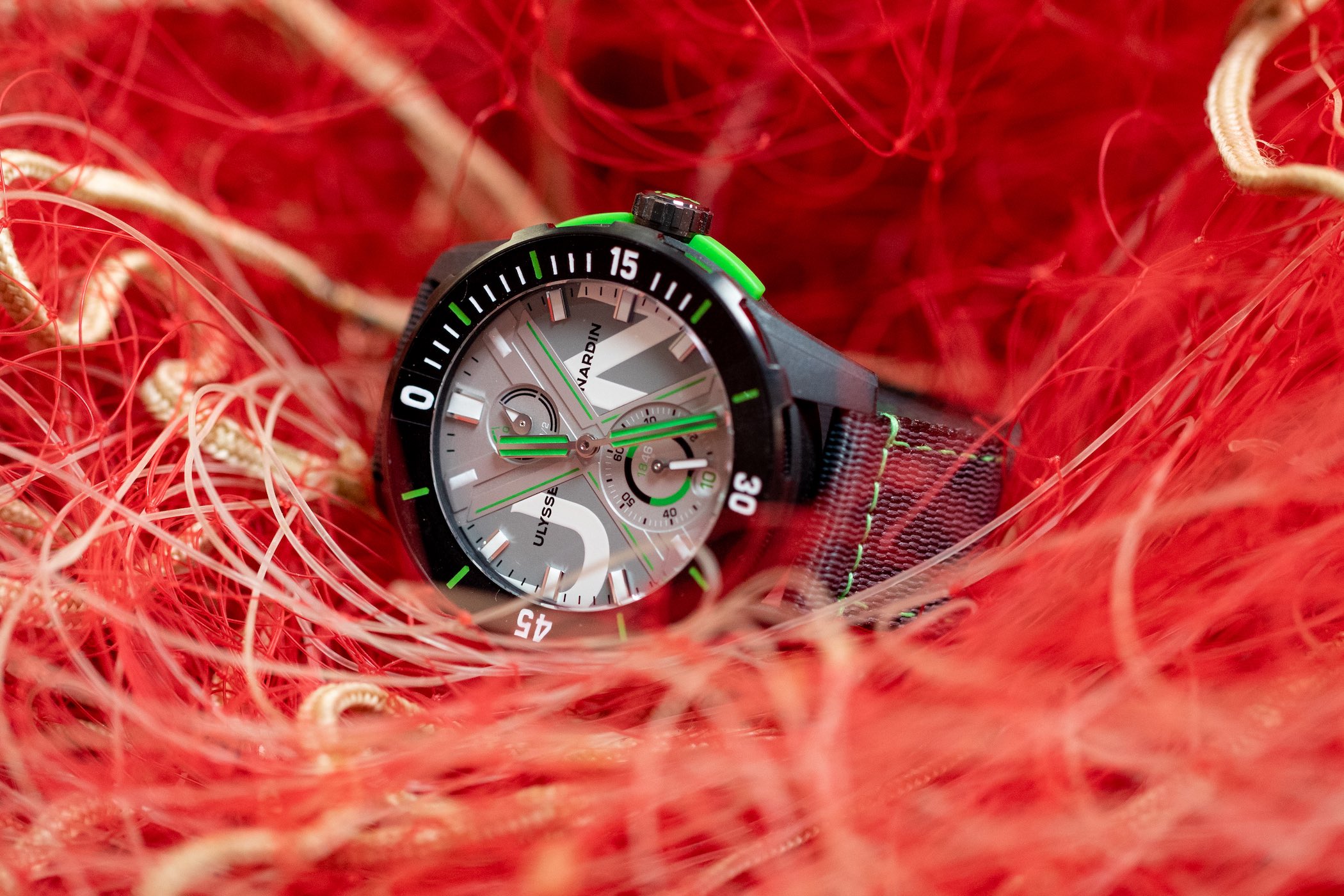


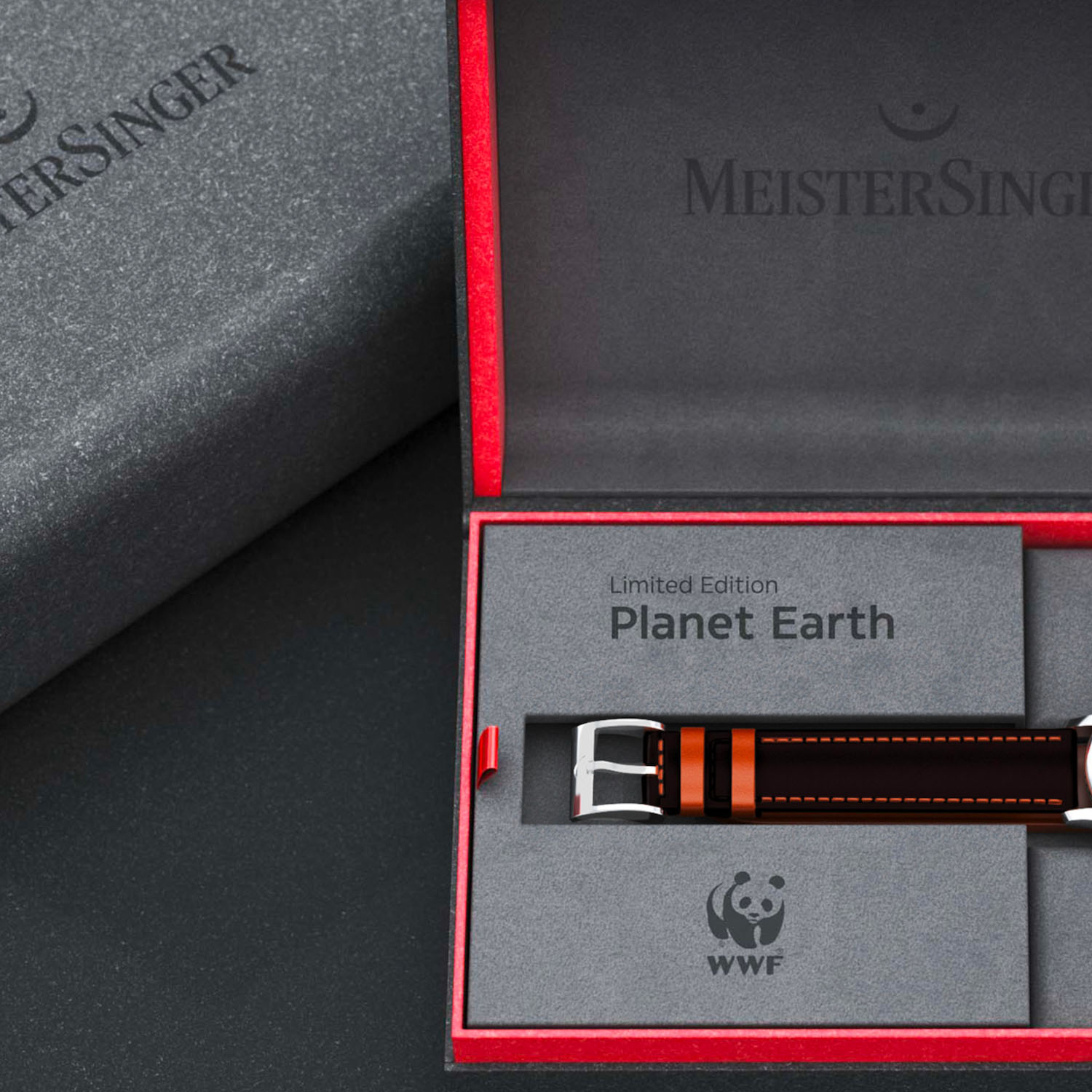
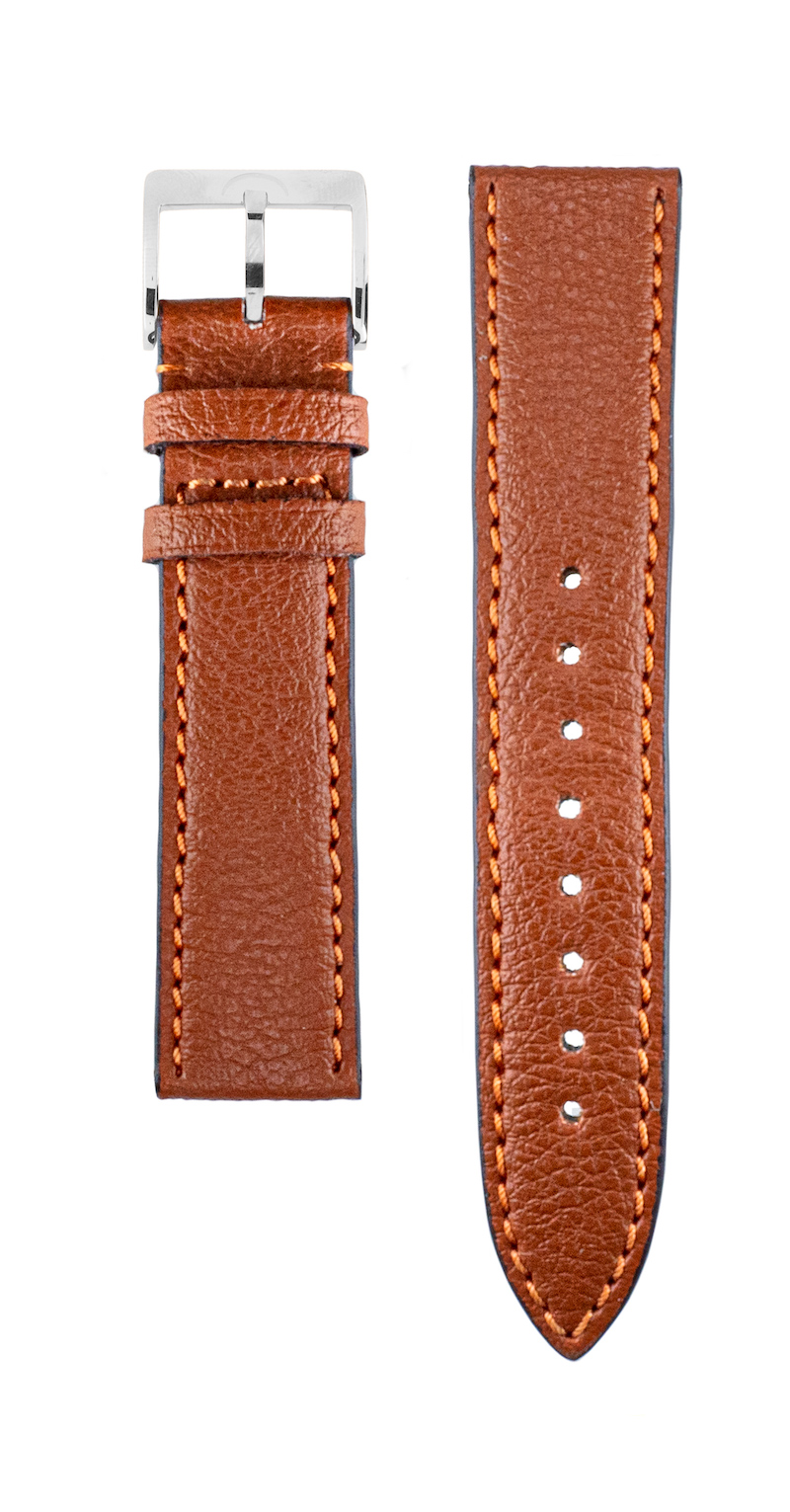
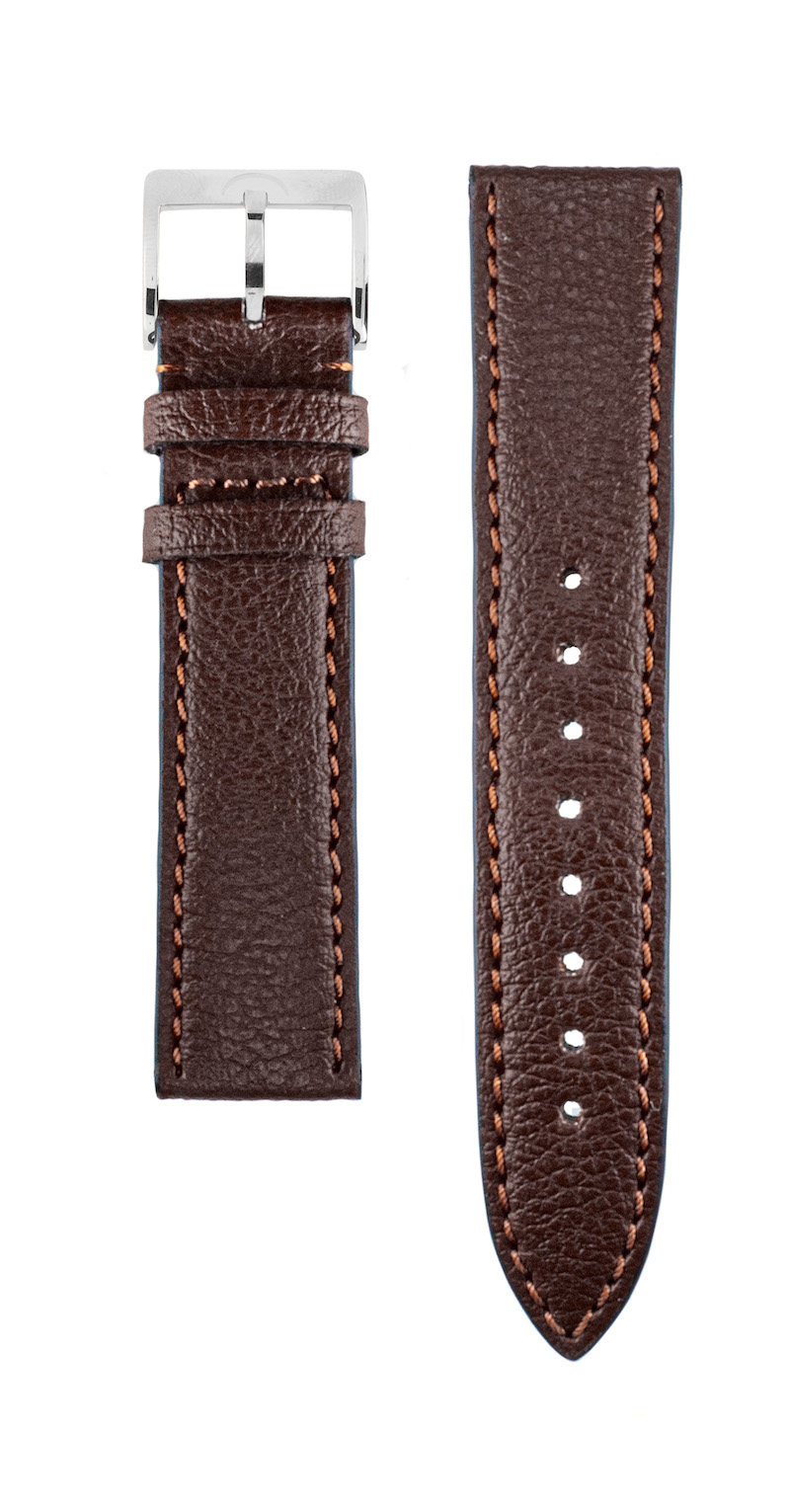
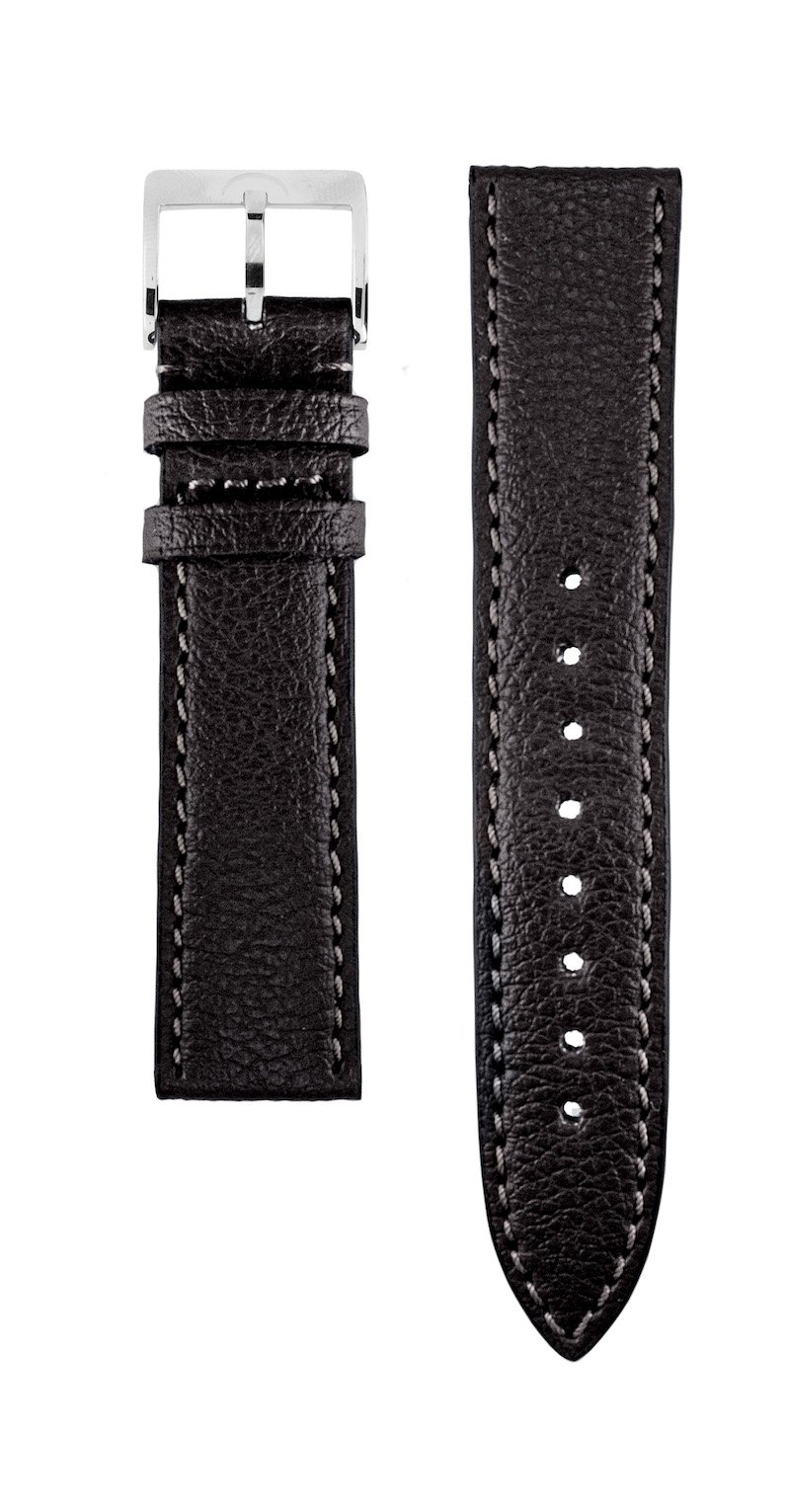
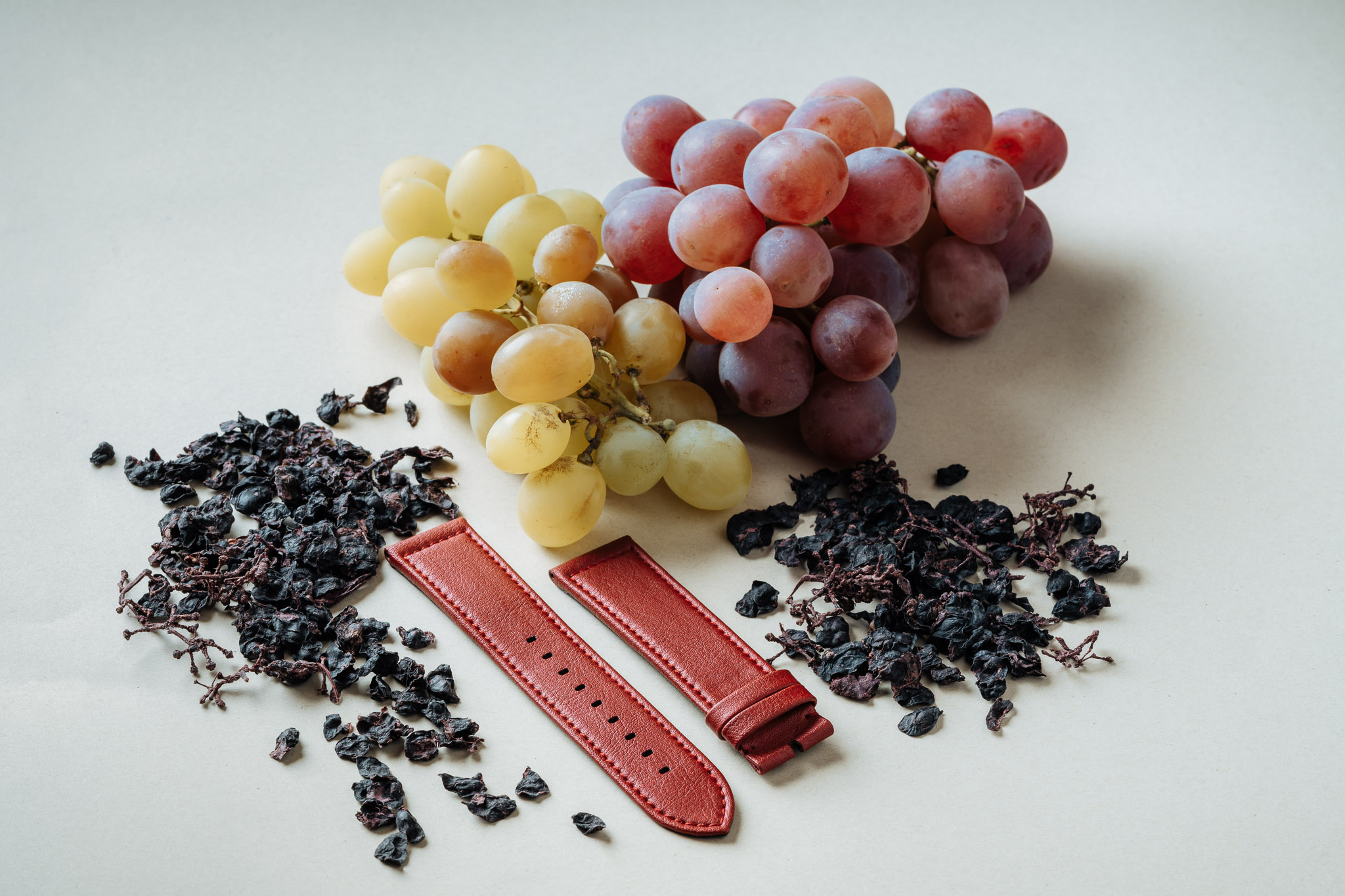
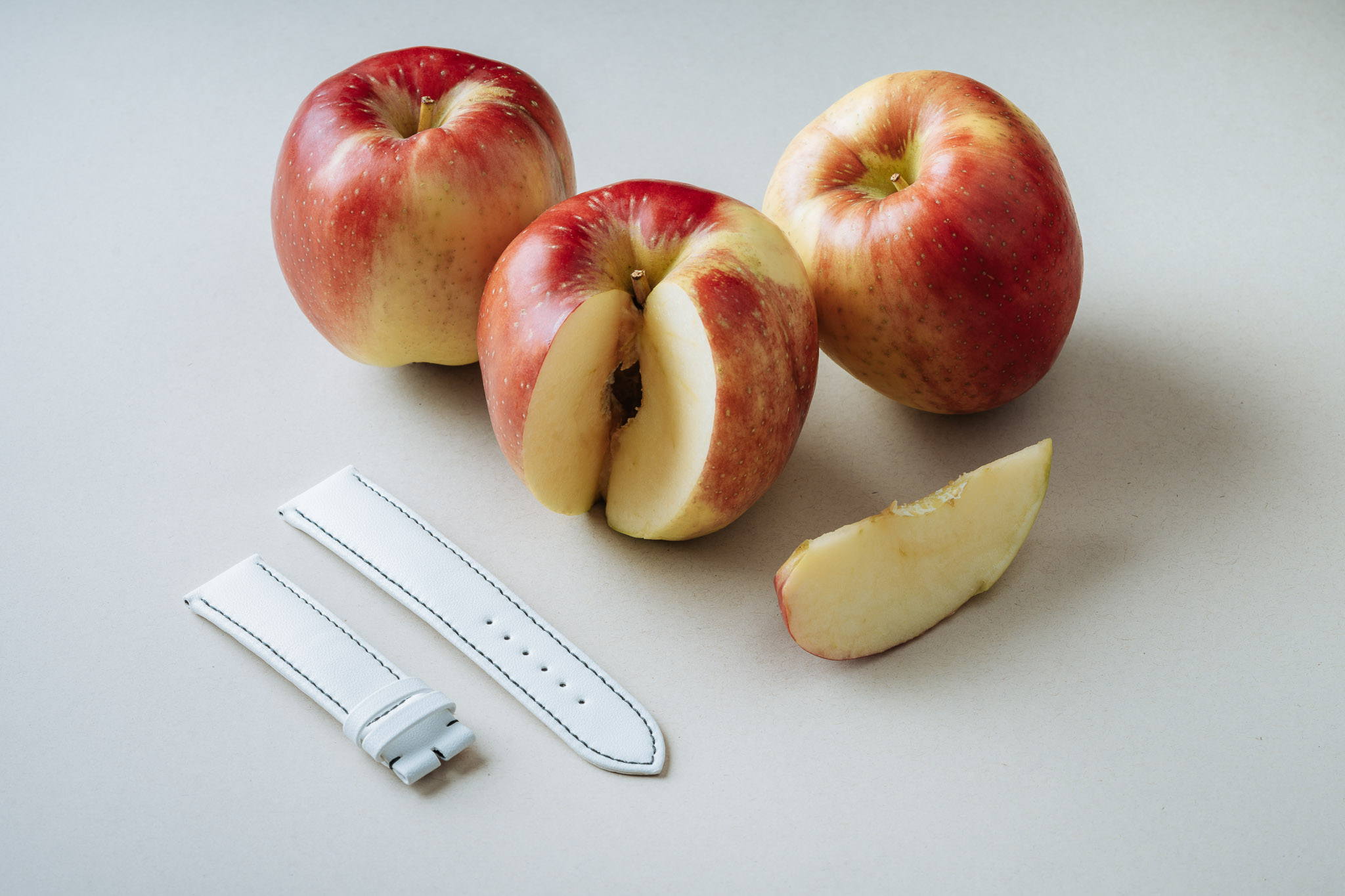
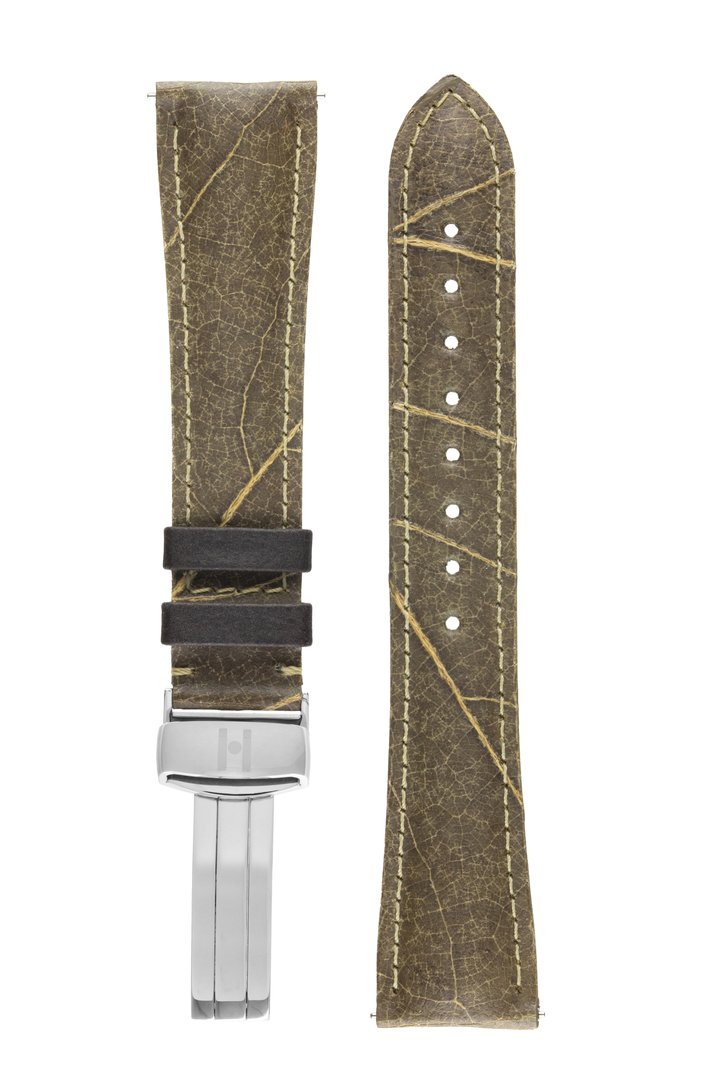
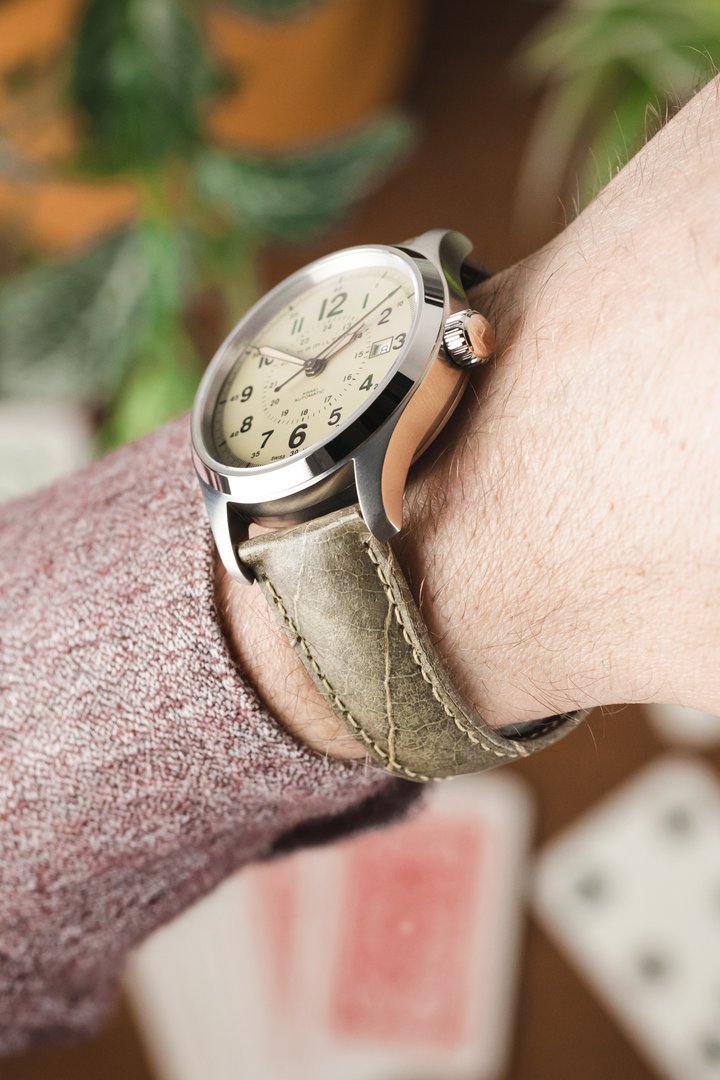
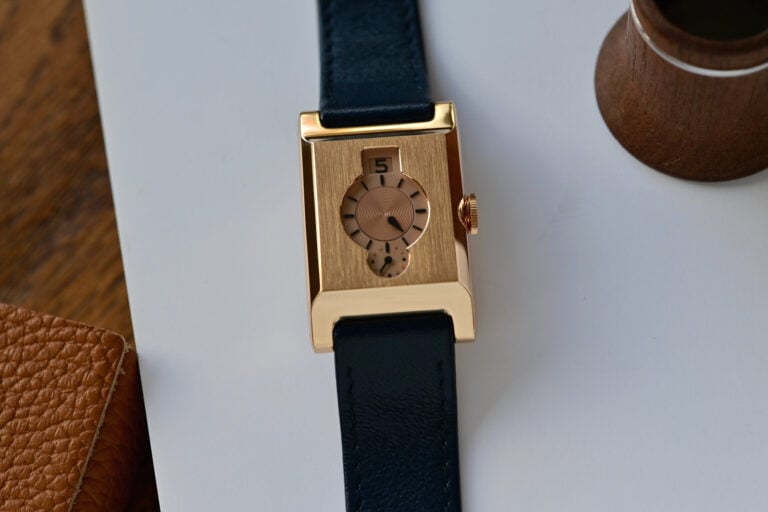
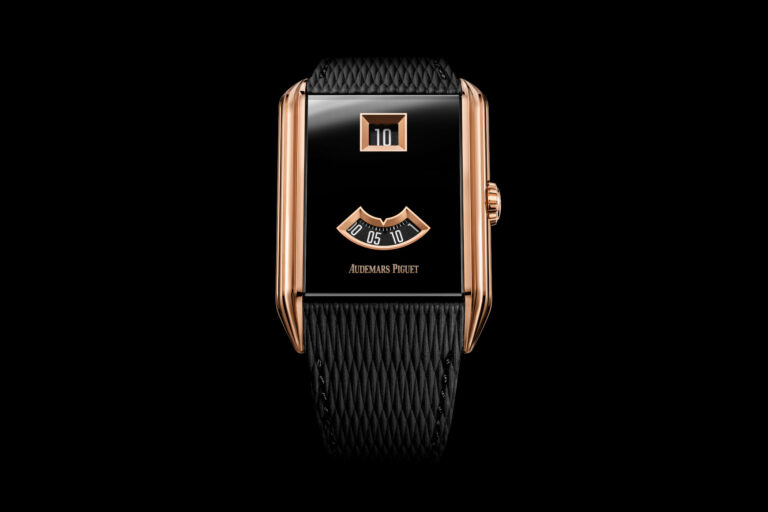
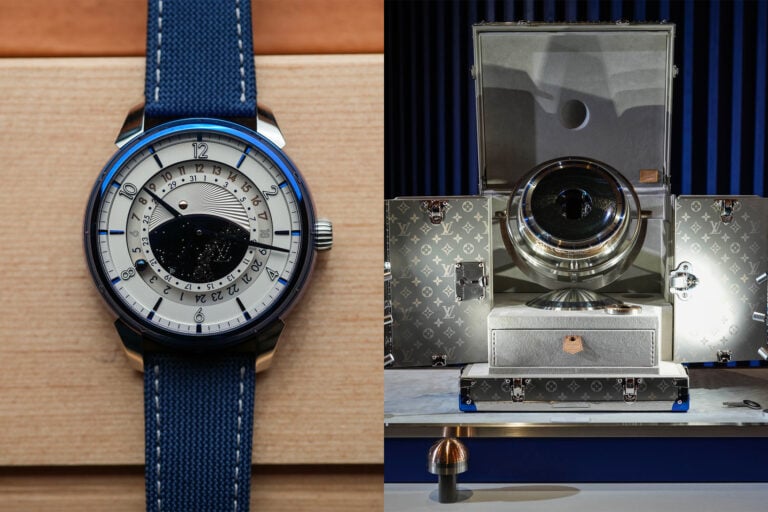
23 responses
I’m not gonna pay for something synthetic for my strap, I want a genuine leather, whether it comes from calves or alligators, nothing fake or imitating
It’s so nice that demented individuals will be able to buy products that will make them feel morally superior to the rest of us.
Well, already the marketing campaigns and online announcements likely put out more CO2 than what is saved on 150 Gramms of a watch. Maybe simply buy any watch you like and simply don’t take that flight, buy that new car 5 years later, walk to the office, get a bicycle..
@marco
Actual effort is not on the menu for someone buying luxury items Moral superiority is always the blue plate special !
Thank you for this article! I’m doing my best to reduce the amount of suffering I contribute to. We cause a lot of misery merely because of preference for certain looks and pleasures, and that’s where I personally draw the line. I’m not perfect but my goal is clear. I’ve been putting Colareb EcoSuede (microfiber) and apple skin straps on my watches, both of which are fully vegan. Also, ABP Paris has a few options, including a tropical leaf strap that I’ve had made for two of my watches. I’d say that while there aren’t as many options as I’d like yet, we’re at a point in time where we can abandon leather-based accessories, including watch straps. The quality and durability are there, the looks and design are there and I’ve not found prices to be higher than those of leather straps. Efforts are being made by several industries including food, clothing and automotive (Volvo/Polestar are great examples). No reason not to make the same effort to minimize the suffering we cause in our unnecessary and sometimes lavish hobby.
That`s the future for sure! Love it! Go vegan!
?
Leather is a wonderful, versatile and strong material and has shown over the years to be perfect for many things, watch straps included. Otherwise a metal strap is favoured.
When Bill Gates stops flying in his private jet, Bezos stops flying rockets to outer space and 8 year old Africans aren’t needed to mine for cobalt for the latest electric car battery I might reconsider the 9in piece of leather that attaches my watch to my wrist.
No, I really wouldn’t. I won’t surrender my leather watch straps, just because someone’s trying to guilt-trip me. I just love how people think that such choices make them morally superior. My vegan ex-GF was so morally superior (fond of same guilt-tripping, too) that she had no moral issues with breaking my heart. Nor did she have any with inflicting radical views without any consideration, for that matter. But hey, I was the bad guy with my leather straps and love for bacon. Ate a number of mouthwatering steaks with garlic and rosemary butter to eat off dumping that travesty.
I have no problem with people selling and buying that stuff, but I do have a problem with such marketing. It’s just as insufferable as my loopy ex.
Rant over.
I had a suede-effect vegetarian strap from Oris on one of the Big Crowns. Not impressed at all – simply didn’t last. The product will have to get better before it’s accepted.
I would be happy to try a vegan strap depending on cost. I find leather steaps very uncomfortable especially in the summer, if I get a watch with one on, it gets changed before use with nylon,canvas or metal . If an animal is being killed for food it makes sense to me to use all of it, so if straps are made fron them and others want them I dont see a problem, but killing animals just for the skin seems wrong to me.
Surprised to see no mention of Cartier’s solarbeat Tank with its apple-based strap. It’s a really high profile company and watch.
No animals were harmed in the making of my Tudor bracelet… Or the Sinn, for that matter…
Great article thank you for raising the subject. If one was to give it some real thought rather than being flippant why would you want to wear dead skin around your wrist? It’s not about how small/insignificant the object is because it’s just one strap it’s the whole industry worldwide that has to be considered, the animal cruelty involved and the conditions the people work in to supply the skin. Tesla stopped using leather years ago and Mini has just followed suit. Vegans are not weird they are just from the future.
@Len Herbert: “Vegans are not weird they are just from the future.”
Thanks for the free laughs. : D That trope gotta be one of the way you try to ram your vegan opinion down our throats
As a twenty-something, I’m gonna tell you who are the space travellers: No one. *duh*
I prefer bracelets but have no issues with leathers of most kinds. We use bamboo sheets because they are incredibly comfortable, sleep cool and not ridiculously expensive. When it comes to veganism, or any other “-ism” for that matter, to each his own.
I don’t care what anyome eats, drinks, watches, wears or copulates with but cannot tolerate anyone shoving their preferences down others’ throats.
All the suffering with world hunger and you want to use products people could eat to satisfy your bleeding heart. Children are starving and you want to try and guilt me to use apples to strap a watch on my wrist?
I will stick with leather.
I bought a One Eleven because I liked the style and the fact it was solar…NOT because it had a case made from some sort of Castor plant derivative and a strap made from recycled plastic water bottle!
Watches have a such a tiny environmental impact, leave everything alone
Thank you for this article.
Reading most comments I notice a lot of folks are still avoiding looking at themselves in the mirror.
I guess EVERYTHING can be justified. “I’ll start doing my share when the Big Boys do theirs”. That kind of mentality is beyond silly but mainly so hypocrite.
Change has to start somewhere, no matter how small. The funniest part is that some of us watch nerds have “pets” that we love dearly. This is called cognitive dissonance y’all.
I would rather not create demand and dollar votes for cruel industries when there are viable cruelty-free alternatives. Everybody mad about “moral superiority” needs to chill. It’s just about making small sacrifices and/or changes for the greater good. It’s one small piece of a larger constellation of choices people make every day. A person could be vegan and also a terrible person in general; you could also be a saint to other people and pets but not care enough about animal welfare to change your consumer habits, or maybe you care a lot but the changes are just too overwhelming, time-consuming, expensive or inconvenient. So it’s not a question of moral superiority. It’s a question of how much you are willing to change and/or sacrifice in an extremely limited context for moral reasons. Are you willing to pick up after yourself, or would you rather litter and leave dog doo in your neighbor’s yard? Are you willing to return the shopping cart when you’re finished with it or would you rather leave it in the street? etc.
If the strap is not vegan they won’t get my money, ,so much choice, vegan leather, cork, perlon, nato, rubber, sillicon, linked bracelet, milanaise braclet, the meat far-right have probably actually bought many vegan strap, just in a different material to vegan leather.
Great points and great to see the conversation around this topic!
I personally prefer metal and cork.
I have a few straps made of apple leather from ColaReb and so far I’m very satisfied with the quality.
I’m also curious about Pinatex and some new materials I recently heard of that are completely plastic/synthetic-free (unfortunately, I don’t remember the names).
On another note, I’m surprised by the confessions of some of the commenters that in their reading the article’s purpose is to “guilt trip” them.
I genuinely found it rather balanced with a good open discussion of impact, pros and cons.
Would be curious to hear other’s opinions.